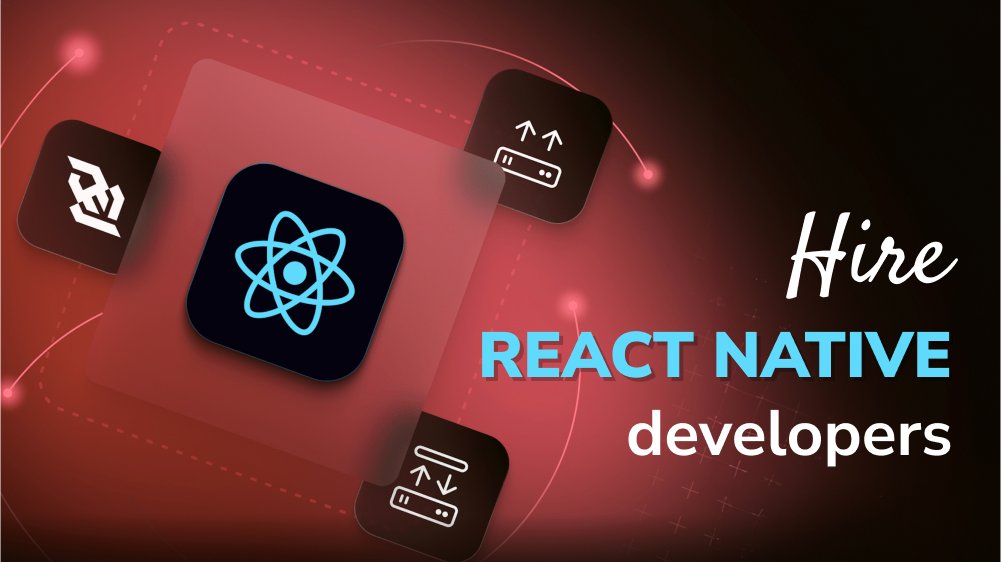11 Skills You Need to Start Your Journey as an iOS Developer

Content Map
More chaptersDid you know that there are around 1.46 billion active iPhone users worldwide? You might even be one of them. However, have you ever thought of becoming a developer and publishing your own mobile apps on the App Store? If the answer is yes, this article is just what you need. We will discuss what iOS developers do, the most basic technical and soft skills aspiring iOS developers need to have, and what salary you can expect from this career path.
Key Takeaways:
- iOS developers build, test, and refine mobile apps to meet client demands.
- Aspiring iOS developers need to learn the basics of iOS programming, explore its tools and libraries, and build a strong foundation regarding its core concepts.
- Polishing soft skills and obtaining relevant certificates boosts your competitive edge in the crowded market.
What Do iOS Developers Do?

An iOS developer is someone who has comprehensive knowledge regarding how iOS operates on different Apple devices. Typically using Swift or Objective-C programming languages, an iOS developer builds, tests, and refines the apps to meet clients’ requirements. As with any other application, the steps involved in creating an iOS app vary. Depending on the level of seniority, company size, or project scope, iOS developers might participate in one or two development phases or even oversee every single stage.
iOS Development Phases

Here is a quick look at 4 iOS app development phases.
Conceptualization, Market Research and Compliance
After comprehensive market research and assessing the market demand potential, the initial app idea often becomes more solid. The initial ideas often include what the app does and how it functions. It is easy to get caught up in the first steps of excitement. However, developers and relevant stakeholders need to double-check if the vision conforms with Apple’s terms of service – user privacy and security, design, copyright, and more. Your app won’t even be approved for distribution if it doesn’t comply with Apple’s terms.
Design
During this step, developers try to figure out the app’s details and how it’ll operate in real life. They will work closely with UX and UI designers to specify the page’s layout, appearance, user interaction point, and other design details. At the same time, developers are working on another crucial component - the software’s architecture.
Building the App
After the meticulous planning stages, developers will get to the coding. There are three main coding facets. An iOS might specialize in a single facet only or be involved in all of them.
- Back End: Simply put, the backend is where the data structure and infrastructure determine how the app will work.
- Application Programming Interface (or API): An API is an intermediary that enables two applications to talk and share data.
- Front End: Everything that users see and interact with directly is referred to as the front end.
Testing and Submitting
Every app needs to go through testing to make sure it operates as intended when it reaches its users. Several types of tests are done to test the app extensively, like unit tests, performance tests, device tests, usability tests, beta tests, etc.
Hard Skills Needed to Become an iOS Developer

Swift Programming Language
Swift is an open-source, compiled language for iOS, macOS, watchOS, and Linux apps. Developed by Apple and first introduced in 2014, the language boasts an excellent community, readable syntax, and strong security features. To grasp the language’s basic syntax, error handling, control flow, key data structures, options, etc., it’s a good idea to start with Swift’s official document. Visit Swift’s public forums or blogs to gain further insights. There are also courses available to learn Swift programming, such as iOS & Swift - The Complete iOS App Development Bootcamp.
All in all, Swift is a required skill for iOS developers.
Apple Xcode IDE
App development, publishing, and creation tools are available for all platforms in Apple’s free Xcode integrated development environment (IDE). It is compatible with widely used coding languages, including Python, Java, C++, Objective-C, and Swift.
iOS developers with Xcode IDE experience can build excellent iOS apps and integrate Apple services, such as Passbook (now Wallet) or Game Center, into their apps.
Libraries and APIs
In addition to having a strong community, iOS has comprehensive resources for app development. Some core iOS frameworks are AVFoundation, Core Data, Cocoa Touch, UIKit, and AutoLayouts. Useful libraries to start your iOS app development journey include SwfitLint, Hero, SnapKit, Alamofire, and more.
With these tools in hand, you can integrate an app into Apple’s existing infrastructure with ease. They are easy to use, have rich features and allow developers to leverage built-in functions like calendar apps and camera apps.
Apple OS Framework: Core Data
We would like to dive a little deeper into a persistent Apple framework: Core Data. You can think of it as an extremely data organization system that allows you to store and retrieve data quickly. This framework also allows you to manage data relationships efficiently while sorting and finding the data quickly with the help of built-in tools. iOS mobile apps use other kinds of databases as well. Find out more about the topic in our detailed article.
Memory Management
Many iOS developer interview questions involve memory management. To master this technical skill, you should be well-versed in Swift programming and understand the differences between a value type and a reference type.
Memory management skills require you to learn ARC (Automatic Reference Counting) and how iOS manages the memory for reference types. Skilled developers will understand that exceeding the per-process memory limit can cause an app to crash. Most iOS devices have limited memory, so it is crucial to manage memory effectively to prevent this from happening.
Source Control
Rarely does a developer work solo on development projects. Hence, having a system in place to track any changes made to the source code is paramount – this prevents any unwanted conflicts that may arise between developers. Efficient source controls prevent delays and allow developers to make improvements in the code where needed.
Spatial Reasoning Ability
To become a senior iOS developer, you need to have spatial reasoning abilities. More than simply being visually appealing, your app should be intuitive – the placement of the buttons and images should create a cohesive user experience, whether users are using the app on mobile devices, MacBooks, AppleTVs, or watches. Simply put, developers need to have the ability to comprehend and work with the spatial relationships that exist between various parts of a user interface.
UI and UX Design Experience
A software developer working on iOS applications needs to have UI and UX design experience.
They need to know basic design patterns like MVC (model-view-controller) and KVO (key-value observing) while understanding Apple’s guidelines and design principles for iOS apps.
Soft Skills and Qualifications to Succeed in iOS App Development

Being responsible for developing mobile devices powered by Apple’s iOS operating system requires more than hard skills; a strong iOS software engineer needs to work on their soft skills as well.
Adaptability
Technology has been altering and evolving in leaps and bounds. A wonderful and necessary quality of any software engineer is the ability to adapt to changing times and be willing to learn new skills. Implementing the changes and trends of the technology landscape makes room for innovation in the company.
Critical Thinking
Being proficient in technical skills is essential, but the ability to critically assess difficult situations is just as important. A software engineer with strong critical thinking capabilities is more likely to be considered for promotions as they can lead companies toward great achievements.
Team Player
As we mentioned earlier, a developer rarely works completely alone on an app development project. Hence, being a team player is another key non-technical skill you need to hone and refine. This often entails other skills like communication and collaboration.
iOS Development Certificates and Courses
Obtaining the relevant certificates allows you to stand out in the competitive market of iOS developers.
Apple’s App Development with Swift Certification
Being part of Apple’s Everyone Can Code program, this certificate aims to teach beginners to intermediate developers Swift. The program includes modules on app design, prototyping, and coding.
iOS Development with Swift Specialization (Coursera)
Whether you are an aspiring iOS developer or already have some coding experience, this course by the University of Toronto on Coursera covers the basics of iOS development, including app design and more advanced topics like performance and networking.
Certified iOS App Developer (Udacity)
Targeting both beginners and intermediate developers, this certificate is a nano degree program that teaches XCode, UIKit, and Core Data. It also offers real projects and mentorship.
iOS Developers’ Expected Salary
Numerous factors affect a developer’s salary, including location, education, certifications, skills, the industry you choose to work in, and the list goes on. You can learn more about developers’ salaries by country in our informational article here. However, when it comes to iOS developers specifically, here is a quick look at their salary by country.
- US: $79,795 to $148,000 a year
- Germany: 42.500 EUR to 80.000 EUR a year
- India: $13,500 to $31,000 a year
All in all, working as an iOS software engineer offers nice compensation, especially considering the massive knowledge newbies need to acquire in order to succeed in the field.
Final Note
Every job comes with hard work and a lot of training, and iOS developer is no exception. The journey, though difficult, will be rewarding in the end.
You can always search for internships or opens for junior positions in credible tech companies to kickstart your developer career. Consider Orient Software as the next step in your career path – we guarantee you, that your skills will grow exponentially. After all, dozens of clients have trusted us over the past decade to deliver high-quality applications. Whether you’re an aspiring iOS developer or need a talented team, join the many who trust us. Ready to take the leap? Contact Orient Software today!







